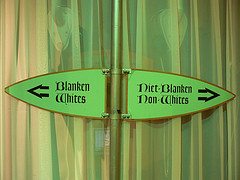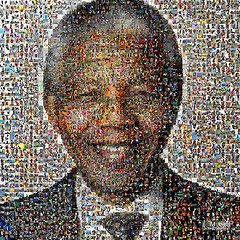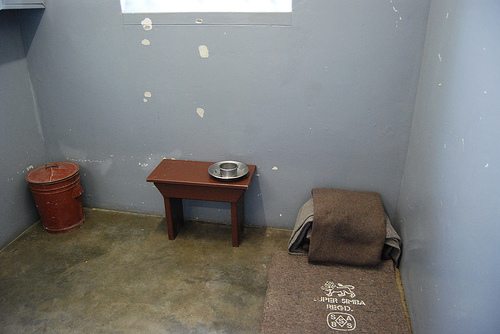Paco travels to South Africa: When Sonia phoned Paco was visiting the city
In this topic we will study another tense in English, the Past Continuous or Progressive and we will see how frequently it is used with the Past Simple tense. We will also study the degrees of adjectives, positive, comparative and superlative. Undoubtedly, both subjects will be really useful for you English. We will also study some vocabulary related to clothes.
 |
| By thomas sly. C. Commons |
 |
| By Ryan Somma. C. Commons |
Paco kept the mobile and he was entering the museum when...
 |
| By g-hat. C. Commons |
Verdadero Falso
Verdadero Falso
Verdadero Falso
Verdadero Falso
Verdadero Falso
Do you remember him? He helps you with the pronunciation of words, phrases and sentences. Ask him how to pronounce them! Come back whenever you need him!
Nelson Mandela
 |
| By MastaBaba. C. Commons |
Probably, everybody has ever heard of Nelson Mandela, but do you really know who he was? Mandela was born in 1918 and was an anti-apartheid activist who was condemned and imprisoned for twenty seven years. He spent eighteen years in a prison on Robben Island, South Africa. There, his reputation grew and he became the most significant black leader in South Africa. As he himself stated, he struggled against white as well as black domination. He wanted a democratic and free society in which all persons lived together in harmony and with equal opportunities. His struggle against apartheid has made him be awarded on more than one hundred occasions, including the Nobel Peace Prize in 1993. He was released from jail on 11 February 1990 and became the first democratically elected State President of South Africa in May 1994. He held his Presidency until June 1999.

|
| By Paul Mannix. C. Commons |
Mandela has always loved South Africa and he has told the rest of the world so. This is what he said about it:
"I believe that South Africa is the most beautiful place on earth. Admittedly, I am biased, but when you combine the natural beauty of South Africa with the friendliness and cultural diversity of our people, and the fact that the region is a haven for Africa's most splendid wildlife, then I think even the most scrupulous critic would agree that we have been blessed with a truly wonderful land. I would like to extend a personal invitation to you to come and see for yourself the splendour of South Africa. I know that my people will be delighted to welcome you and I think you will be enchanted by their warmth and hospitality. I am equally sure that you will enjoy our culture, our cuisine and the warmth of our people."